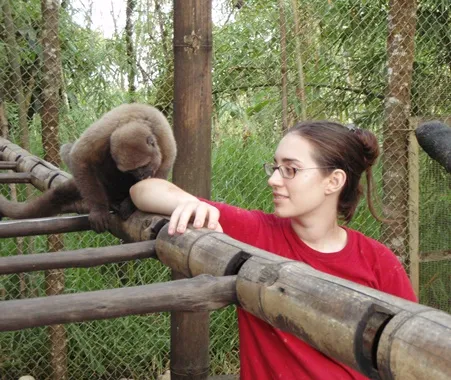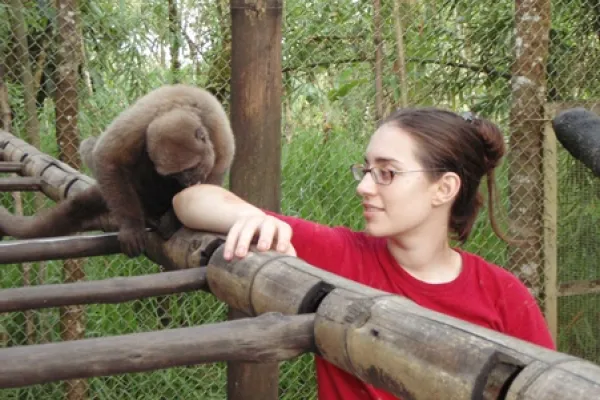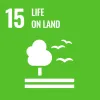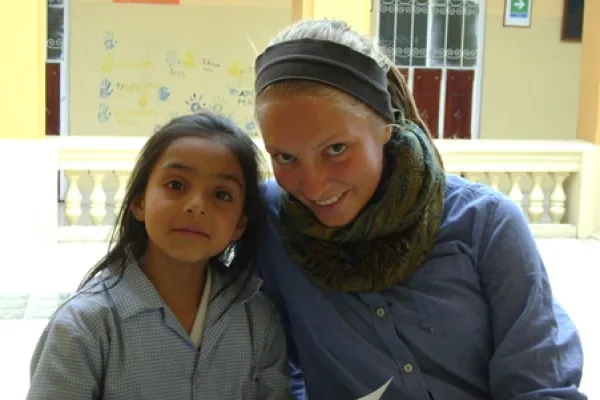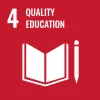Overview
This project is located in the Ecuadorian rainforest and works for rescuing, rehabilitating and when possible releasing animals back to their natural environment.
The centre works in partnership with the Ecuadorian Environmental Police (UPMA) and the Ministry of Environment in the fight against the trafficking, abuse, capture and hunting of wild animals. This center is very organized and volunteers can help with caring for the animals and maintenance.
This project was founded in 2006 with the aim of protecting the wildlife of the Amazon region through the rescue and rehabilitation of local flora and fauna. The animals at the center have all been abused, neglected or abandoned. Some of the animals were orphaned when their parents were killed by hunters, others were rescued from animal dealers who were trying to traffic the animals out of the country and many have been retrieved from families who had kept these animals in captivity. Unfortunately the majority have suffered some sort of physical or psychological abuse.
There are currently at least 40 different species of animals at the center which include: Ocelot, tayra, capybara, parrots, monkeys, tortoises, and caimans amongst others.
The center is also open for tourists to visit, charging a small entrance fee that is the center’s only other source of income. As animal welfare is not a high priority for many Ecuadorians, the background and mistreatment of each animal is explained to tourists, with the idea to educate local and foreign visitors about animal protection issues. In general, the visits are not guided, but tourists can read about each animal on the information sign at the cages.
Volunteer Work Schedule
Volunteer Work Schedule
On your first day, you'll attend an orientation meeting where we'll go over the activities planned for the upcoming days. This will also be an opportunity to discuss your expectations and explore your talents and interests, ensuring that your volunteer experience is both impactful for the project and personally fulfilling.
After the orientation, you'll dive into your tasks. Keep in mind that each day will be different, with your responsibilities varying based on the project's daily needs. We value your flexibility and willingness to help wherever it's needed. Lunch is provided at the project site from Monday to Friday, giving you a midday break. Afterward, you'll continue your work until around 5 pm.
The remainder of your day is free for you to enjoy. Your weekly schedule will generally follow the same pattern, with working hours from 8 am to 5 pm, Monday through Friday. The coordinator will guide you to where you're most needed, and we also encourage any ideas you might have!
Every other weekend, either Saturday or Sunday, volunteers will work a few hours in the morning to help feed the animals. The rest of the weekend is free for you to explore or relax.
Volunteer Roles & Responsibilities
Volunteer Roles & Responsibilities
Each activity contributes to the well-being of the animals and the smooth operation of the animal rescue center.Volunteers are generally involved in the following tasks :
Daily Animal Care: Attend to the everyday needs of the animals
Diet Prep and Feeding: Cut up fruit,prepare diets, and feed the animals
Help New Arrivals: Assist new animals in adjusting to the center
General Maintenance: Take care of maintenance and cleaning tasks around the center
Construction Work: Repair and build new enclosures to improve facilities
Enrichment Activities: Enhance cages and enclosures to keep animals engaged
Training: Train animals that cannot be released to reduce stress, especially during medical checks
Vet Assistance: Support the vet when needed
Additional Tasks: Engage in gardening,improve trails, and create signs for visitors
Project Requirement
Project Requirement
Volunteers must be 18 years or older at the time of joining the project. You need to have an open mind and a flexible attitude for working in a new and different environment. The volunteer should bring energy and enthusiasm to make a difference. Participants must be fit and healthy at the time of joining the program and should be prepared to work outdoors and get their hands dirty. Participants in the program should have a keen interest and love for animal conservation work. Participants should have no criminal convictions and should provide a clean criminal background check report.
Schedule a Google Meet with a Program Advisor
Interested in our programs? We're here to provide expert guidance
- Get Detailed Info
- 20 min One -on-One meeting
- Get expert advise
- Application Guidance
Photo Gallery
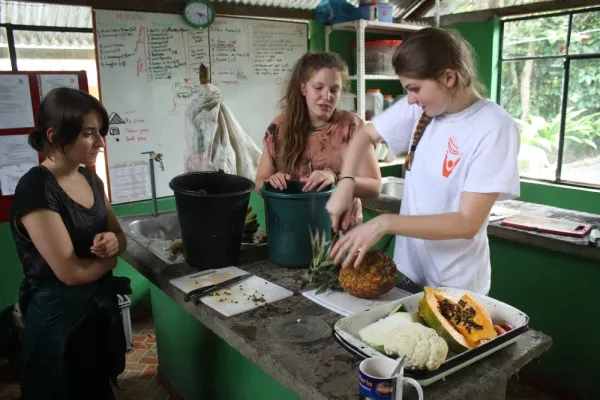
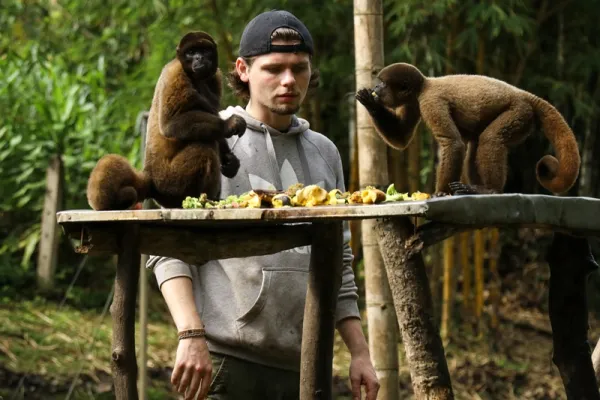
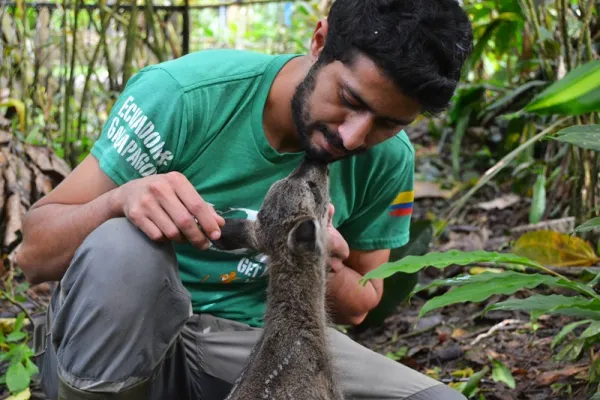

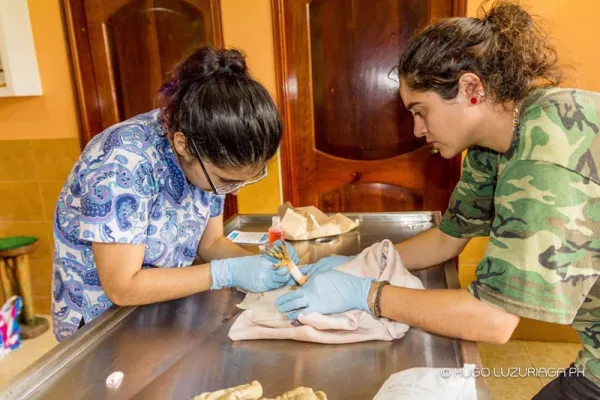
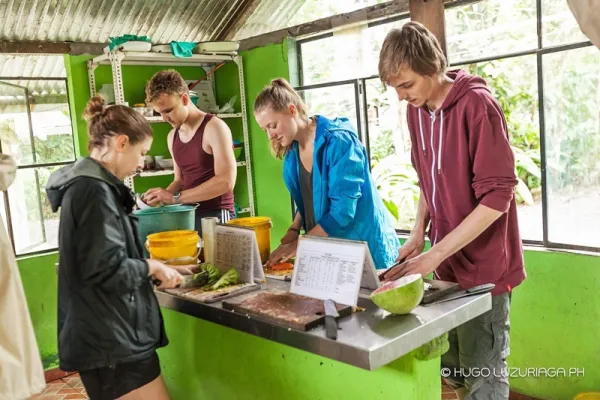
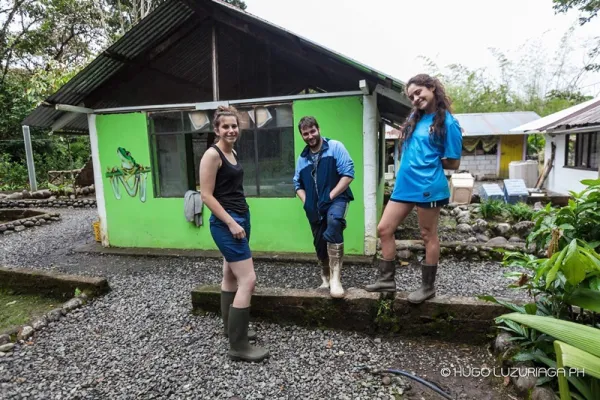
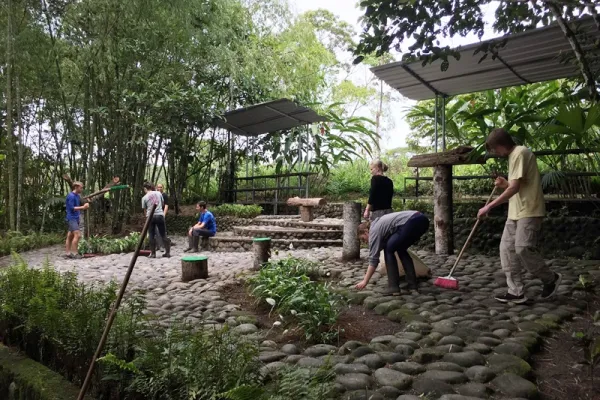
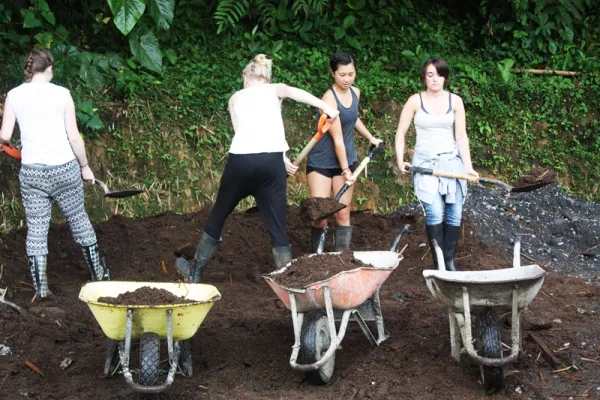
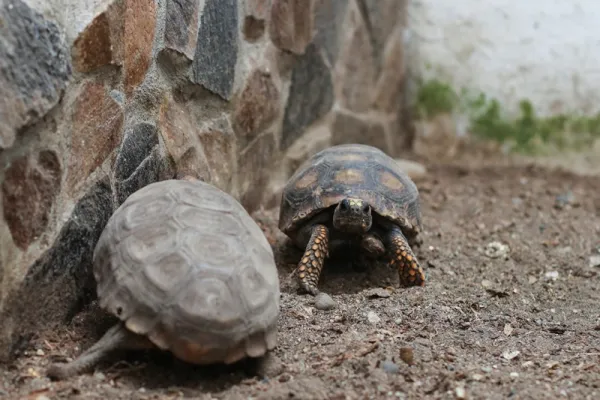
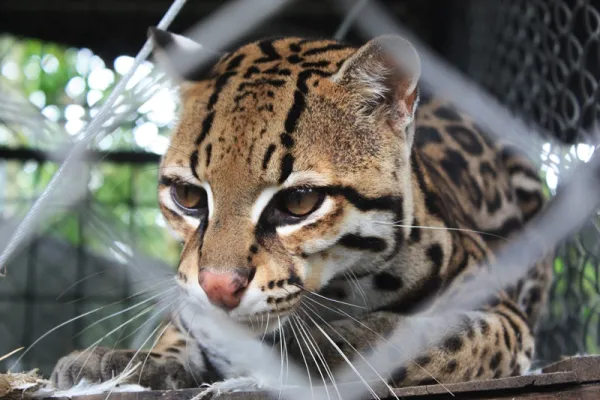
Living
Living
Airport Transfer
Volunteers would be picked up from the Mariscal Sucre International Airport by the VolSol staff or the in-country coordinator. Volunteers who are already present in Quito can arrive directly at the hostel accommodation in Quito.
Accommodation
Upon arrival in Quito, volunteers are provided accommodation for a night at a hostel centrally located in Quito. After transfer to the project in Puyo, volunteers are accommodated onsite in shared cabanas.
The volunteer cabañas at the Animal Rescue Center offer dorm-style rooms that can accommodate up to 17 people. You'll have access to shared kitchen and bathroom facilities, along with a social area featuring a TV, DVD player, hammocks, and a selection of books. The accommodation is simple yet comfortable, creating a communal atmosphere among volunteers.
In addition to these basic amenities, the communal kitchen allows you to prepare your own meals or cook together with fellow volunteers. The bathroom facilities are shared, so please be mindful and considerate of others. The social area provides a perfect place to relax after a day of work, whether you’d like to watch a movie, enjoy a good book, or unwind in a hammock.
Orientation
Our local staff will provide a comprehensive orientation session for the volunteers.The orientation would cover information about your project and other essential info. On-site, the program staff will introduce the volunteer to the project and the local project staff and help with basic induction.
Meals
Volunteers are provided with three meals per day from Monday morning to Saturday lunch.Outside these times volunteers can enjoy a meal out in nearby Puyo or prepare food in the communal kitchen. Volunteers are expected to help and contribute in the cooking and cleaning activities as well.Volunteers are able to make trips to the local town to purchase any additional food items/snacks as well. Please note that only breakfast is a provided in the hostel in Quito. You need to purchase other meals on your own.
During your Free Time
While at the project during free time volunteers get to mainly socialize with other volunteers. Wi-Fi is available to volunteers during their free time as well. During the weekends, to travel to Quito or other places volunteers can take a taxi to the bus station (“El terminal”) and take a bus from there.
Here’s how you can unwind after volunteering:
Relax and recharge: Kick back with a book in a hammock or play board and card games with fellow volunteers
Explore Puyo: Just 15 minutes away by car, Puyo offers a quick getaway for some local flavor
Adventure in Baños: About 1 hour and 20 minutes by bus, Baños is a hotspot for extreme sports and fun. You can enjoy thermal baths, dance the night away, or try mountain biking, rafting, canopying,and exploring waterfalls near the active Tungurahua volcano
Jungle tour in Tena: Venture 2 hours to Tena for an authentic jungle experience.
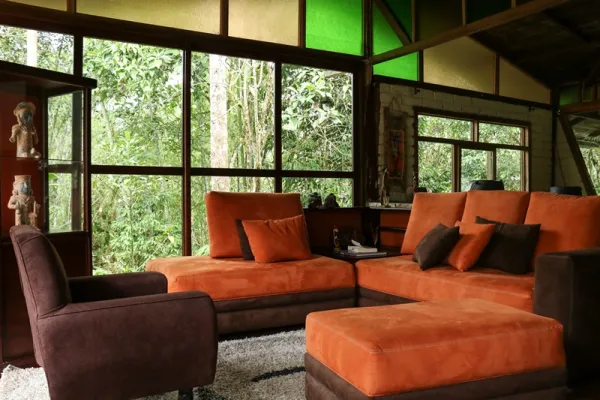

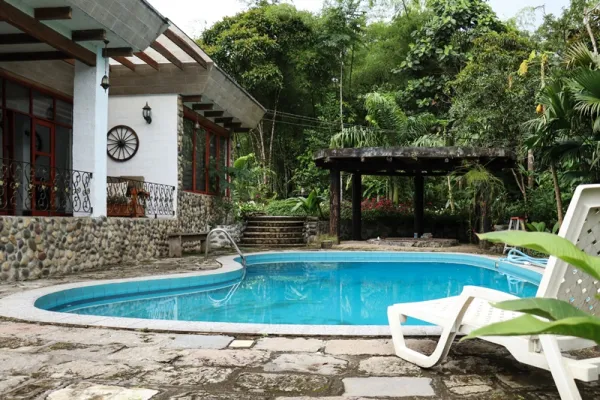
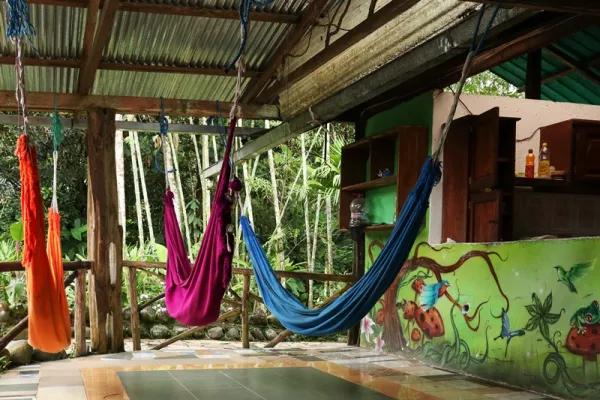

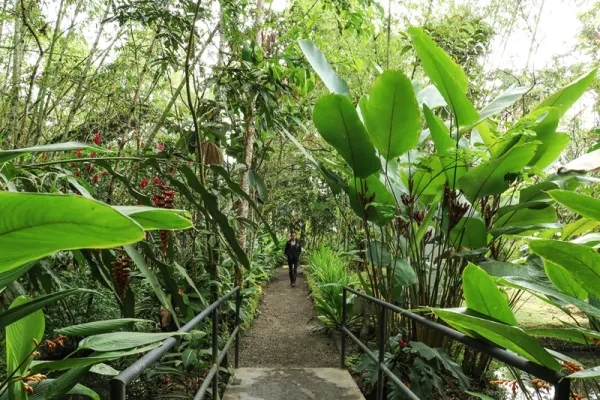
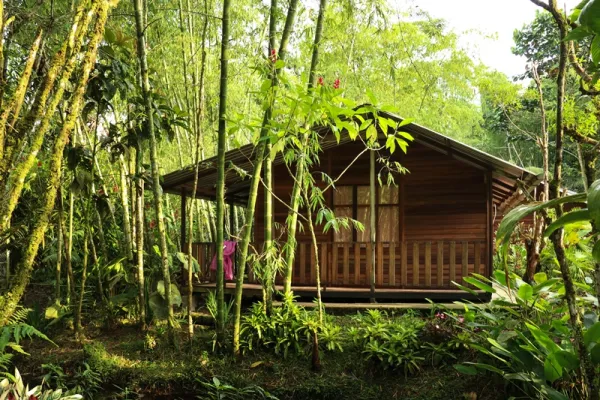
Dates
Dates
January
04
11
18
25
February
01
08
15
22
March
01
08
15
22
29
April
05
12
19
26
May
03
10
17
24
31
June
07
14
21
28
July
05
12
19
26
August
02
09
16
23
30
September
06
13
20
27
October
04
11
18
25
November
01
08
15
22
29
December
06
13
20
27
January
03
10
17
24
31
February
07
14
21
28
March
07
14
21
28
April
04
11
18
25
May
02
09
16
23
30
June
06
13
20
27
July
04
11
18
25
August
01
08
15
22
29
September
05
12
19
26
October
03
10
17
24
31
November
07
14
21
28
December
05
12
19
26
Available
Filling Fast
Booked Out
Costs
| Duration |
Program Fee
|
Choose your currency
|
|---|---|---|
| 2 Weeks | $890 | |
| 3 Weeks | $1090 | |
| 4 Weeks | $1300 | |
| 5 Weeks | $1510 | |
| 6 Weeks | $1680 | |
| 7 Weeks | $1910 | |
| 8 Weeks | $2099 | |
| Extra Week | $230 |
Please Note: An application fee of is charged over and above the program fee as an application payment. A 5% international banking fee is charged for credit card payments of program fee in USD/AUD.
What are you Paying for?
- Airport Pickup from Quito
- One night accommodation in a hostel in Quito
- Accommodation at the Project in Puyo
- Pre Departure Information Guide
- Orientation
- Local Staff Support
- All meals on weekdays
- Transfer to Bus station in Quito to travel to Puyo
- Certificate of Participation(On Request)
What's NOT included?
- Flights
- Return Quito airport transfer
- Return transfer from project to Quito
- Meals on weekends
- Personal expenses
- Bus ticket cost from Quito to Puyo
FAQ's
Health and Safety
-
Do I need to buy health insurance?
-
Yes, for all participants it is mandatory to have a travel medical insurance.Volunteers have the option to purchase Travel and Medical Insurance at a nominal extra cost from Volunteering Solutions. To provide the best option to our participants, we offer comprehensive insurance coverage in collaboration with a leading insurance provider.
-
How safe is Quito, Ecuador?
-
Safety is a concern for all the international travelers; however, Quito is a tourist friendly country and major incidents involving volunteers is unheard of. Both the accommodation of Host family and the Volunteer house are safe. Although, when you venture out for a visit try to be with your group. Consult your coordinator before you decide to wander alone, especially in the night.
Here are some guidelines from the project:
When using public transport keep your bag and valuables with you and not on the shelves or under the seat.
Do not bring things which are not required or are extremely expensive: jewelry, credit cards, more money than you're spending money for that day, etc.
When it gets dark, take a taxi, they are cheap here in Ecuador and will guarantee you a safe ride home.
Do not drink in the company of the strangers, until you are with your volunteer group or company. -
What immunizations/vaccinations will I need?
-
You must visit your doctor 2 months prior to your overseas travel. As a precaution, carry your yellow fever certificate and vaccinations booklet to be produced at the border crossings, if need be.
Application and Program Details
-
Can I volunteer as part of a group?
-
Yes, you must volunteer in a group. In fact volunteering in a group has its own perks. You can get discounts on application fee and you can pool in for add-on tours and travel.
-
When should I apply for the volunteer programs in Quito, Ecuador?
-
We always recommend all our volunteers to apply in advance. This way they get time to prepare better for the trip. Applying in advance has perks like:
-Confirmed booking/placement.
-Application Fee is valid for a year and you can choose to do two three programs in the same year without paying an additional application fee.
-You can make the payment for program fee in parts.
Also, we abide by the first come first serve policy. -
When do I need to arrive in Quito, Ecuador for my program? What will happen once I arrive in Ecuador?
-
Arrival dates for all projects in Ecuador are on Saturdays. Once you land in Quito, you would be picked up by one of the Volunteering Solutions’ staff and you would be given a general induction. The volunteer coordinator will brief you about the history of the program, what the project currently is involved in, additional projects that might be going on at that time that volunteers can participate in, additional safety information, information on what to do during your free time, information on how to get there and around at the project. This is all presented in a booklet format and lasts +/- 30 minutes per volunteer.
On the first day of the project, our volunteer coordinator accompanies the volunteer to his/her project and shows how public transport works to and from the project. On the site, the coordinator will introduce the volunteer to the project and the local project staff and help with basic induction.
-
How long will it take to process my application? Will my application be accepted?
-
Usually, it takes around 10-12 working days for the application to be processed and placement to be confirmed. After the application is accepted, your placement document shall be updated in your account online and you can view the information in your account. The application acceptance depends on the availability of seats in the project as well as the eligibility criteria of the program (age, skills and experience etc.).
-
Are there any necessary requirements to participate in the Quito Volunteering Projects?
-
Below are the necessary requirements to participate in the Quito volunteering projects:
Intermediate or Beginner Level of Spanish is required.
Volunteers must be 18 years or older at the time of joining the project.
Participants must have a Clean Police Record (Criminal Background Check).
Volunteers need to have an open mind and flexible attitude for working in a new and different environment.
The volunteers should bring energy and enthusiasm to make a difference.
Accommodation and Living
-
Can vegetarians be accommodated?
-
Yes, however, you must inform us in advance and also mention about any dietary requirement in your application form.
-
Where can I change my money in Quito? Are there ATMs in Quito?
-
You will find a number of currency exchange counters and ATMs in the airport as well as the popular tourist areas of Quito. Your pre-departure booklet will have this information, your coordinator would also guide you with this information.
-
Would I have free time during my program? Can I do sightseeing during my program?
-
Volunteers typically work for around 5-6 hours in a day. Depending on the workload every day, working hours can vary. Evenings are free for the volunteers and volunteers usually get together and go out for social gatherings, eat out or just relax at the volunteer house. Quito offers a number of activities and attractions for the discerning travelers. Quito is surrounded by Cotopaxi volcano and Pichincha, Antizana, Cayambe volcanoes that make the Andean contour. Full of churches and majestic architecture and exquisite fine dining experiences, walking tour in this beautiful city is not enough. Galapagos is at a distance of half an hour from the mainland Quito by air and you can go crazy looking and experience the untouched wilderness there. Island hopping, swimming, and snorkeling are just a few of the perks!
-
How do I get to the program location?
-
A member of the local coordinating team will take you to your placement and introduce you to your project after giving you a basic orientation about the program/city/culture etc. You will be told about the directions to the project from your accommodation and the mode of transport you can use.
-
Are there more expenses once I arrive in Quito, Ecuador?
-
Your program fee covers your Airport Pickup, Accommodation, Food and In-country Support.
You will need to cover yourself for your personal expenses, such as local transport, telephone, the internet, shopping, weekend trips etc. However, you should carry around $50 per week for your basic personal expenses. This amount can vary and you would need a higher amount if you go on weekend sightseeing tours. -
Can I know more about accommodation and food arrangements?
-
For accommodation, volunteers can choose to stay either with a local host family or in the volunteer’s hostel. Both the accommodation options are fully furnished and provide a comfortable stay to volunteers.
In Volunteer house, there is the provision of the fully functional kitchen but no meals. Volunteers can prepare meals for themselves. Meals are provided by the host family, thrice a day. -
For how many hours do I have to volunteer in a day?
-
Volunteers usually work for 5 to 6 hours a day depending on their program. You will have the weekend off so you can go to travel on weekends. However, volunteers need to be flexible, open-minded and understand that work requirements can change as well on certain occasions.
Connect with Past Volunteers
-
How can I connect with past Volunteering Solutions Ecuador alumni as well as other former and current volunteers?
-
We encourage volunteers to get in touch with former Volunteering Solutions Quito program participants and also other program participants joining our projects. You are recommended to join the Volunteering">https://www.facebook.com/VolunteeringSolutions/">Volunteering Solutions Facebook Page orhttps://www.facebook.com/groups/VolunteeringSolutions/">; Facebook Group to communicate with other participants.
To read alumni interviews from past participants, visit the Meet">https://www.volunteeringsolutions.com/meet-a-volunteer">Meet a Volunteer section on our website.
Flights and Visa
-
What are the Visa requirement and process to go to Quito, Ecuador?
-
No matter wherever you travel to, make sure that your passport is valid for at least another 6 months upon arrival to that place. That is applicable for Ecuador too. On your arrival in Ecuador, you will get a T-3 Visa stamp. This Visa stamp is valid for 90 days. If you plan to stay longer than this, you should apply for 12-IX Visa at the Ecuadorian Embassy of your home country, before leaving. This Visa would be valid for 180 days then.
-
What are the recommended airlines to fly to Quito, Ecuador?
-
From the US to Quito, the recommended services are:
American
Avianca
Aeromexico
From Europe to Quito, the recommended services are:
Iberia
Taca
KLM


























